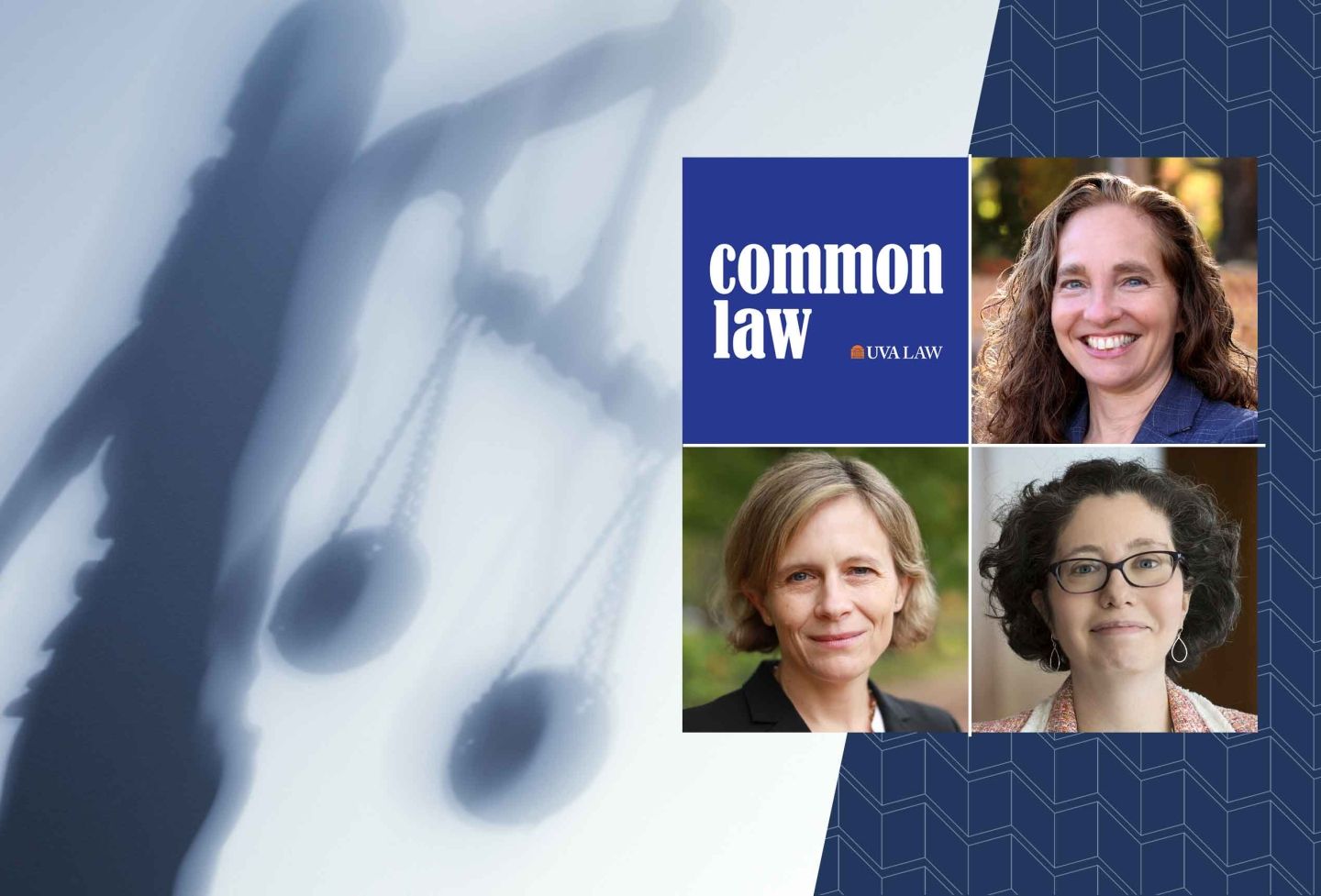The Center for the Study of Race and Law, which began at the University of Virginia School of Law in 2003 at the behest of students following a report of racially motivated violence on Main Grounds, is marking its 15th anniversary this fall.
Professor Kim Forde-Mazrui, the center’s original director, returned last year to the role following seven years of service by Professor Alex M. Johnson, the center’s second director.
“I’m excited to take it back over,” Forde-Mazrui said. “In the last couple of years, because of the political state of our country and because of the rise of white nationalism, there has been a lot of student interest in social justice.”
Through programming, the center recently helped facilitate conversation in the wake of white supremacist activity in Charlottesville and in relation to themes arising from the Black Lives Matter movement.
The center, via an expert panel, even explored the topic of UVA founder Thomas Jefferson’s complex legacy as both the author of “all men are created equal” and a slaveholder.
Forde-Mazrui, whose scholarship focuses on equal protection, with an emphasis on race and sexual orientation, said the center came into being through the activism of a number of former law students.
Roscoe Jones ’03 made the initial recommendation. He, along with fellow students Michael Signer ’04, Scott Cullen ’05, Katherine “Katie” Lindsey O’Connor ’05 and Yalonda Howze ’04, approached then-Dean John C. Jeffries Jr. ’73 with detailed proposals for making the concept a reality—and sustaining it.
Professor Anne Coughlin was integral to the center’s early efforts as well.
H. Timothy Lovelace Jr. [B.A. ’03, J.D. ’06, Ph.D ’12], an associate professor of law at Indiana University, joined Forde-Mazrui as assistant director shortly after the center began.
"In just a few years, Kim grew the center from the dream of several students to a vibrant intellectual community,” Lovelace said.
In addition to conferences and talks on timely subject matter, the center’s contributions over the years have included:
- Annual leadership in the University’s Martin Luther King Jr. Day celebrations.
- Participation as amicus to a winning Supreme Court case on drug sentencing guidelines.
- Special short courses on race and law by visiting professors and a January Term offering by UVA Law faculty.
- An advocacy report to the United Nations.
- And a guidebook for public schools, co-authored with students at Harvard and Stanford, about how to increase racial diversity consistent with the Constitution.
In the months ahead, Forde-Mazrui anticipates a short course on Asian-American jurisprudence and a conference on white supremacy, as well as future programming on Latinos and the law.
Dean Risa Goluboff said Forde-Mazrui and the center were crucial in planning the Feb. 5 commemoration of Gregory H. Swanson, the first black student at UVA and UVA Law. The center will continue to administer the Gregory H. Swanson Award, which was introduced to recognize students who exemplify courage, perseverance and commitment to justice.
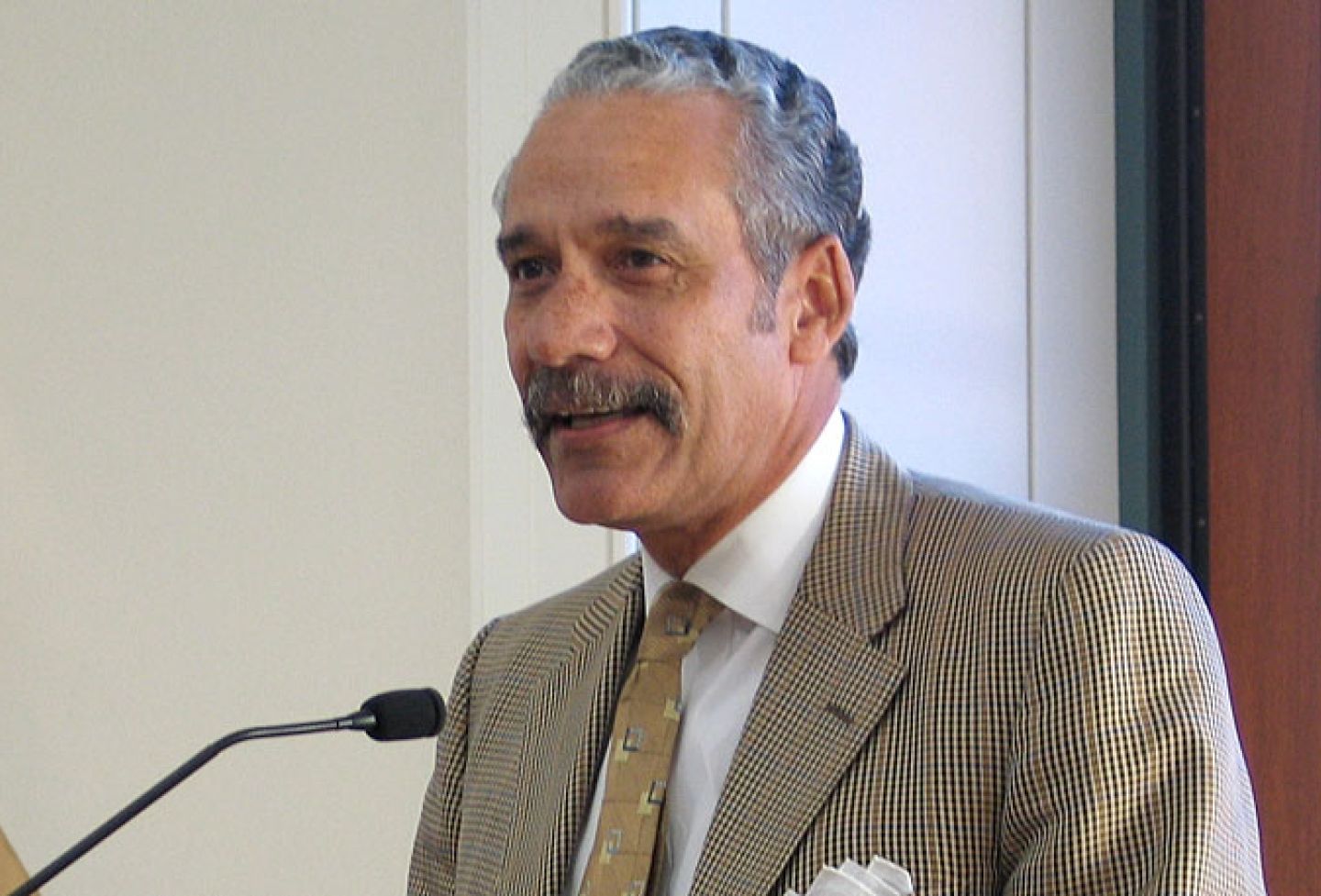
In 2006 the center and the law firm Hunton & Williams sponsored “Race and Gender Diversity in the Legal Profession: What’s at Stake and What Will it Take?” Robert Grey, a Hunton & Williams partner and the 2004-05 president of the American Bar Association, delivered the keynote address. More
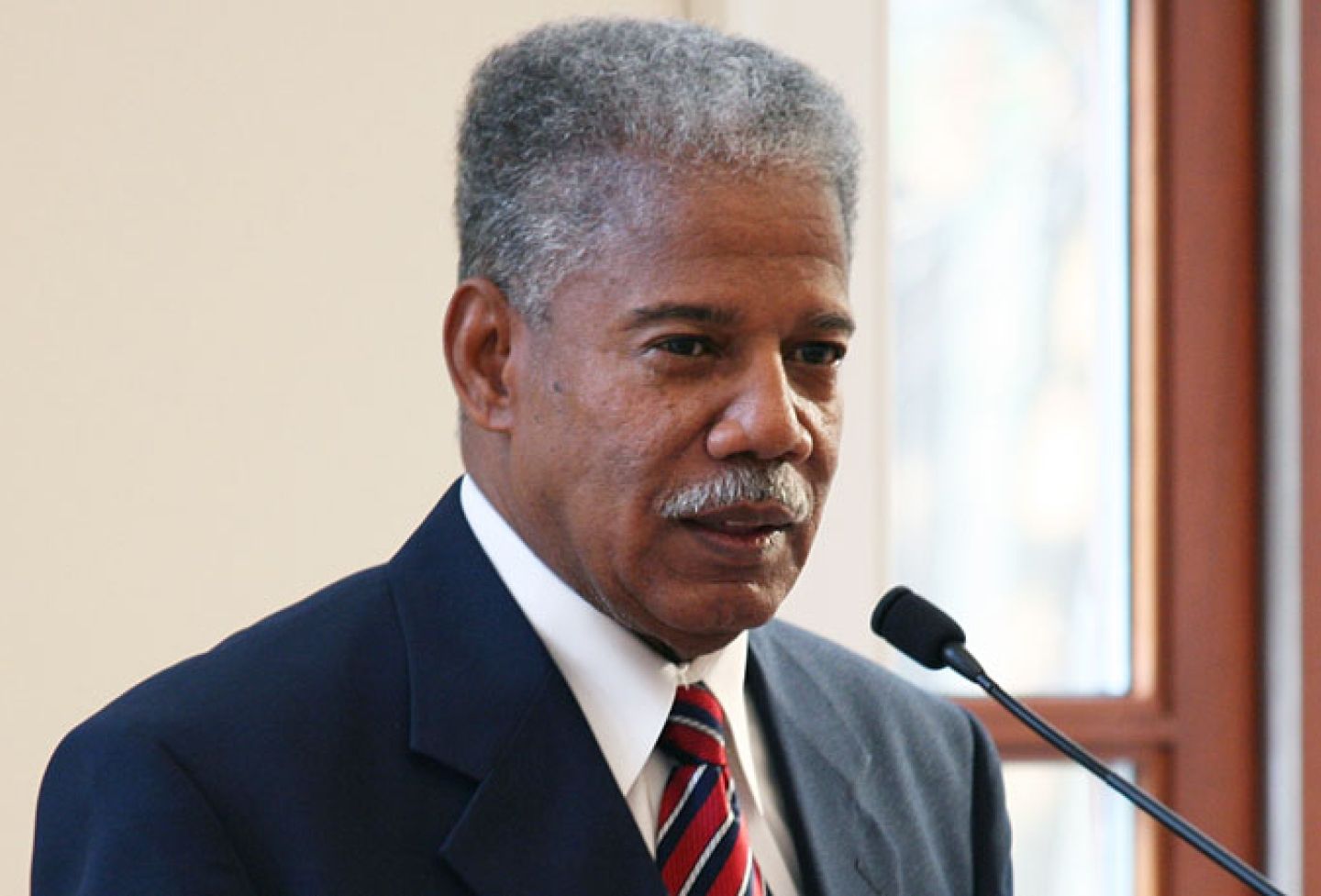
The center and other UVA organizations honored the late Oliver W. Hill Sr., an esteemed civil rights attorney, in 2007 for his integral role in the civil rights movement. Panelist Henry L. Marsh III, then a Virginia state senator (1991-2014) and Hill’s former legal partner, said Hill’s leadership was so effective because he used the law rather than violence to correct discrimination. More
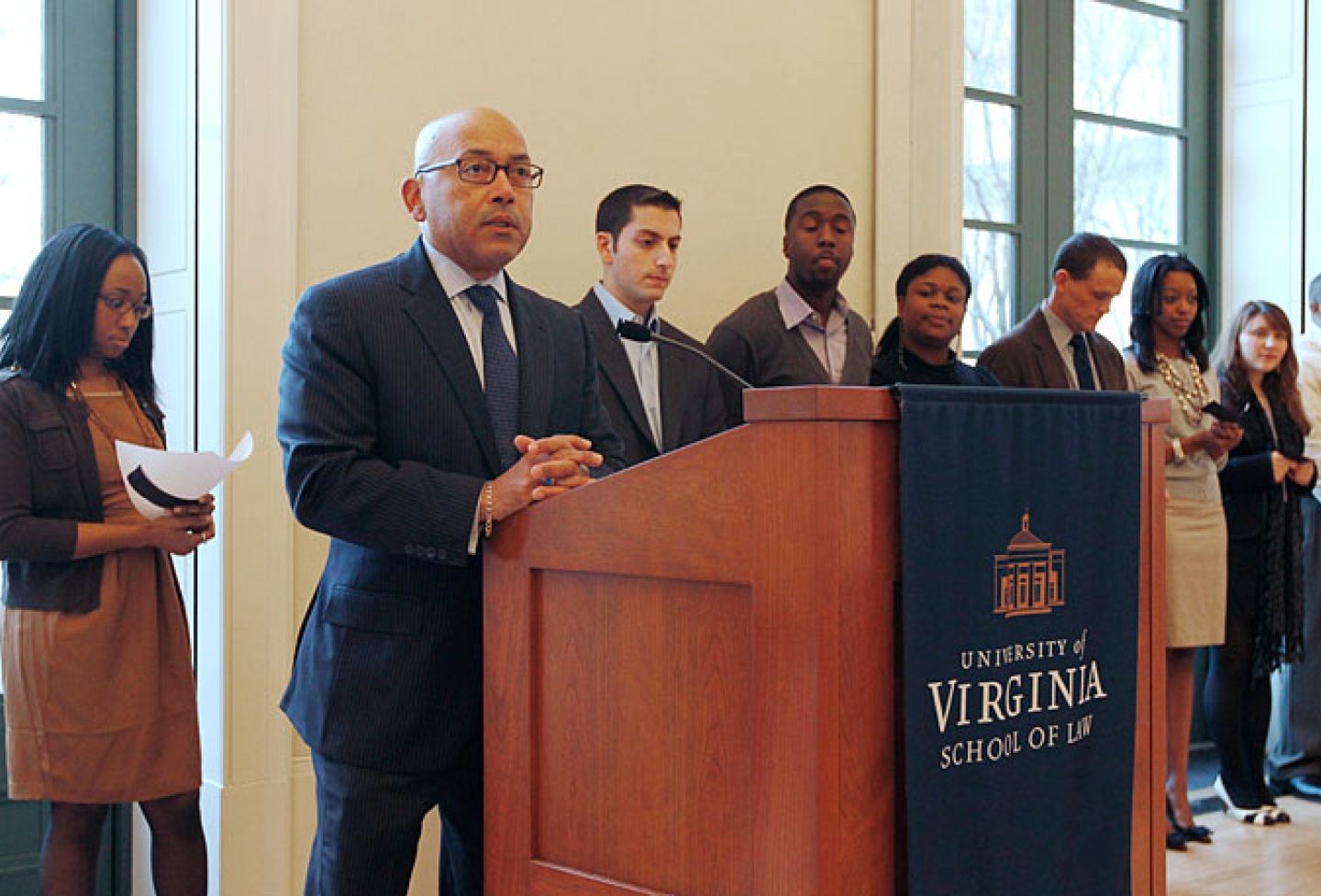
Professor Alex Johnson leads the school in honoring Martin Luther King Jr. in 2012.
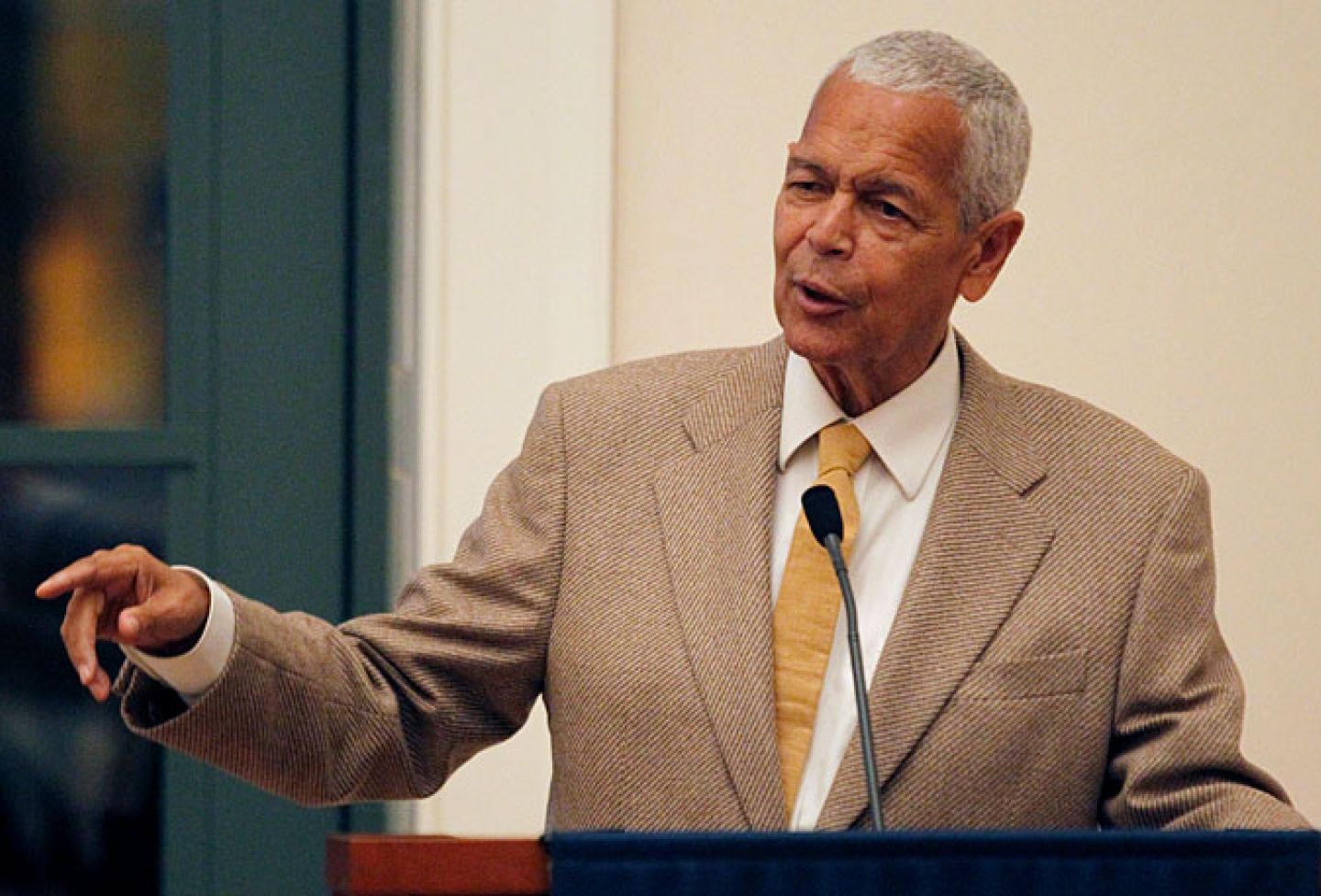
Civil rights leader Julian Bond, then a UVA history professor, also joined the discussion. Presented by the Law School's Center for the Study of Race and Law and UVA's School of Continuing and Professional Studies, "The Final Days of Martin Luther King Jr." capped more than 30 events at the University remembering King that January. More
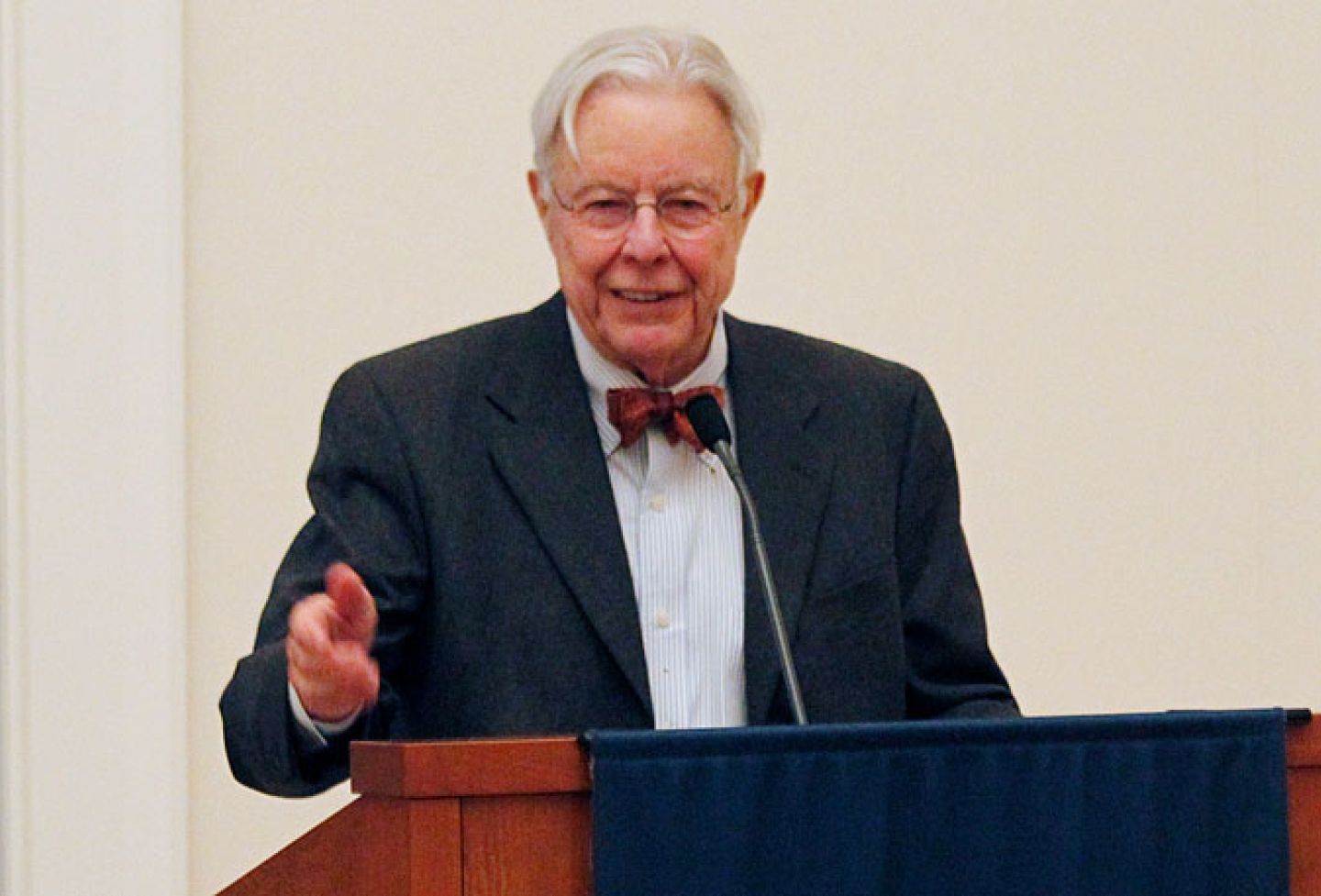
Michael Cody '61, who represented Martin Luther King Jr. during the Memphis sanitation workers march, spoke during the same 2012 event. More
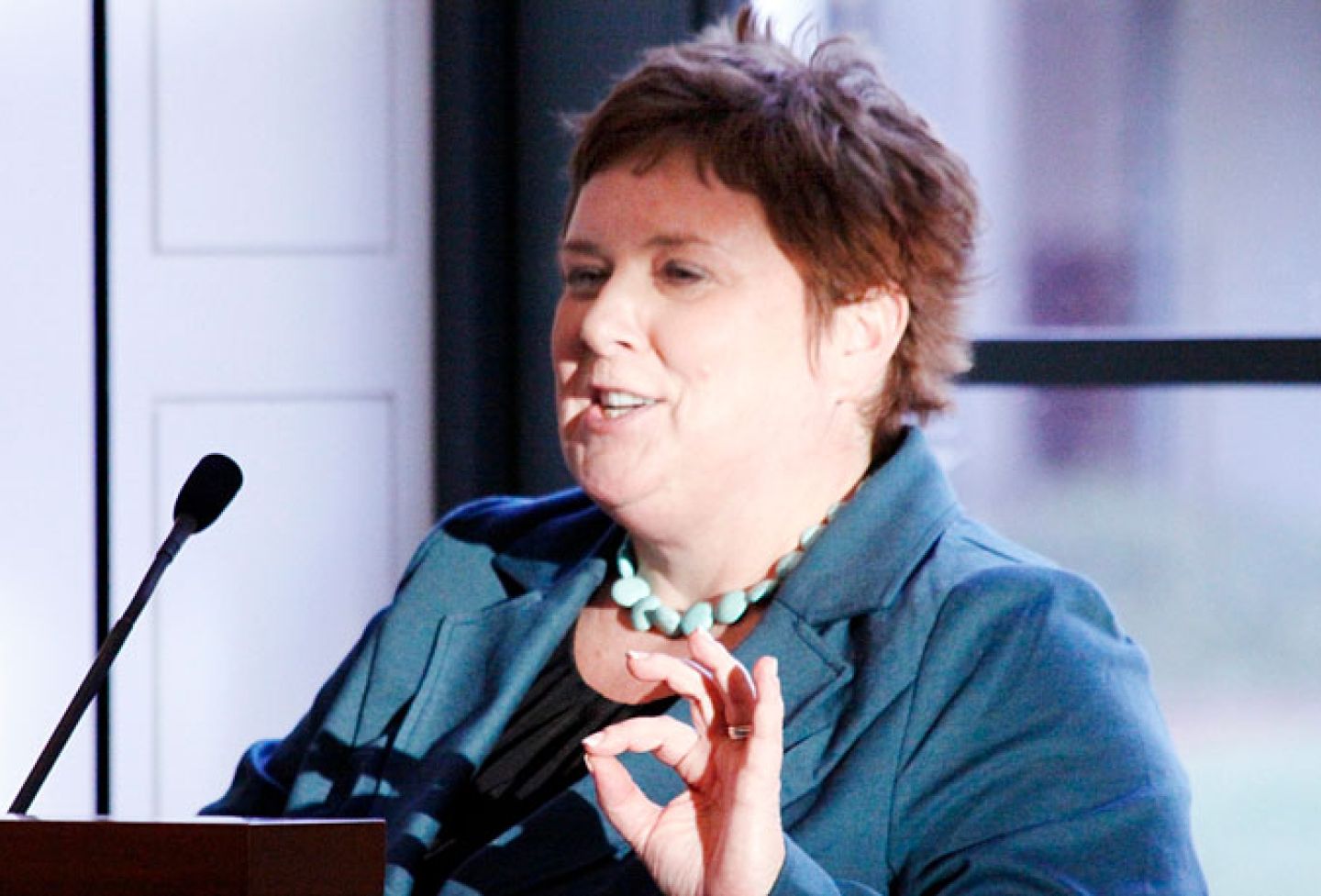
Mary Bauer '90, then legal director of the Southern Poverty Law Center, spoke at UVA's annual commemoration of the life and legacy of Martin Luther King Jr. in 2013. Her lecture was titled "Bending Toward Justice: The Struggle for Civil Rights Today." Bauer now leads the Legal Aid Justice Center in Charlottesville. More
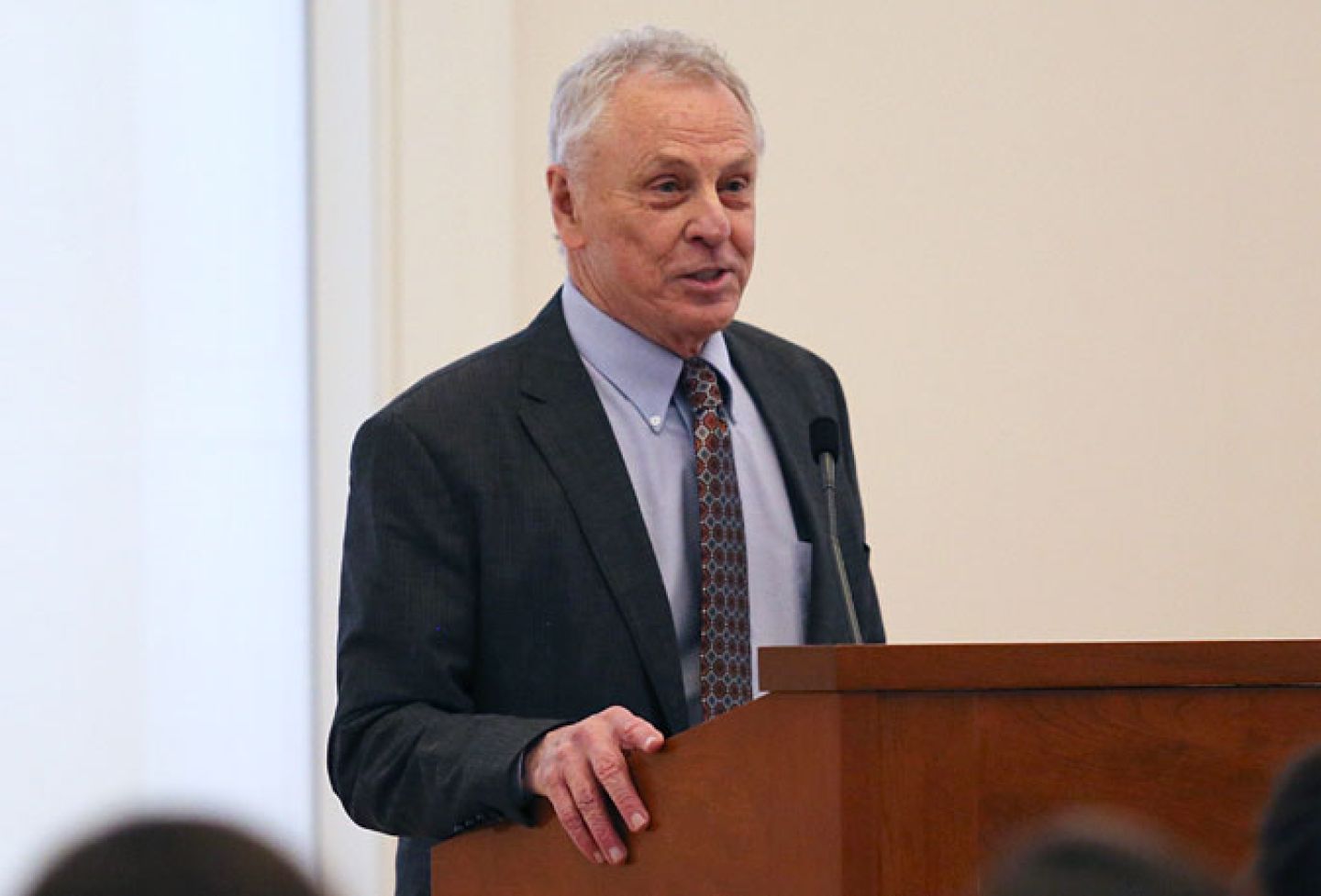
Civil rights pioneer Morris Dees, founder of the Southern Poverty Law Center, spoke at the Law School in February 2015 as part of a center event. More
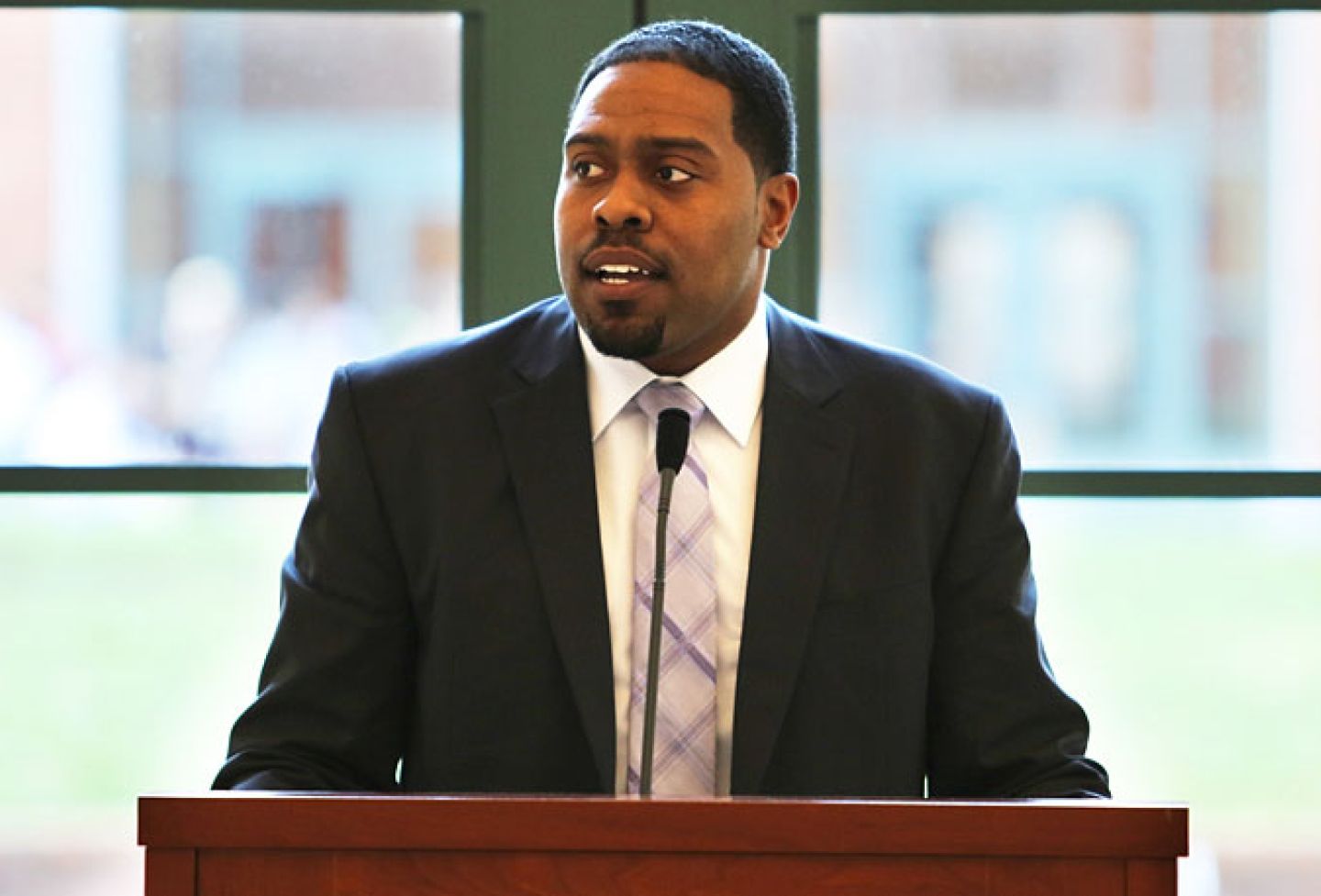
H. Timothy Lovelace '06, an Indiana University law professor, delivers his talk, "'King Making': Brown v. Board of Education and the Rise of a Racial Savior," as part of UVA’s Community MLK Celebration in 2016. More
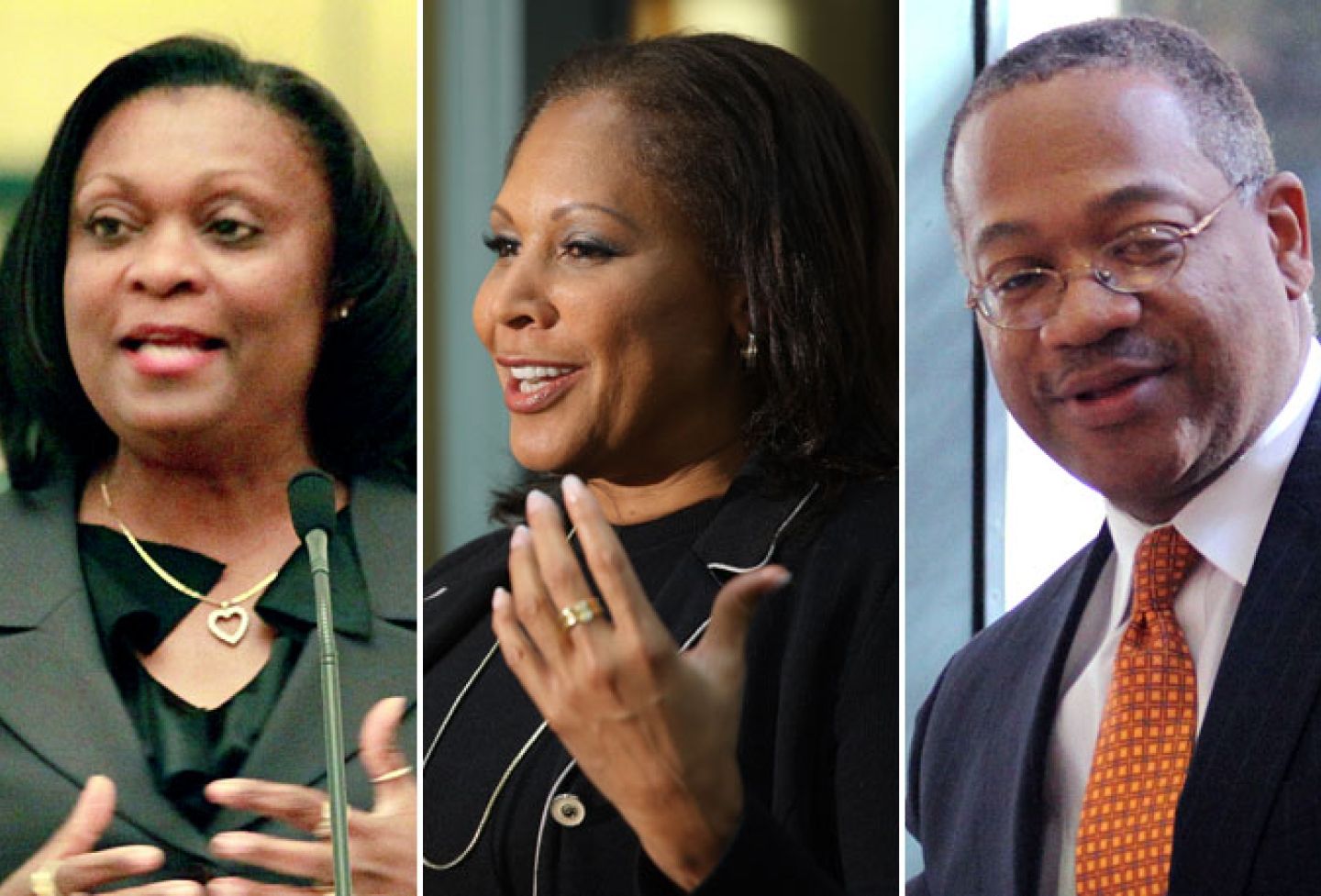
At an all-star conference in 2011, "Increasing Diversity in the Legal Profession," Virginia Supreme Court Justice Cleo Powell '82, the first African-American woman to serve on Virginia's Supreme Court; former NAACP General Counsel Kim Keenan '87; and Virginia Supreme Court Justice S. Bernard Goodwyn '86 spoke. More
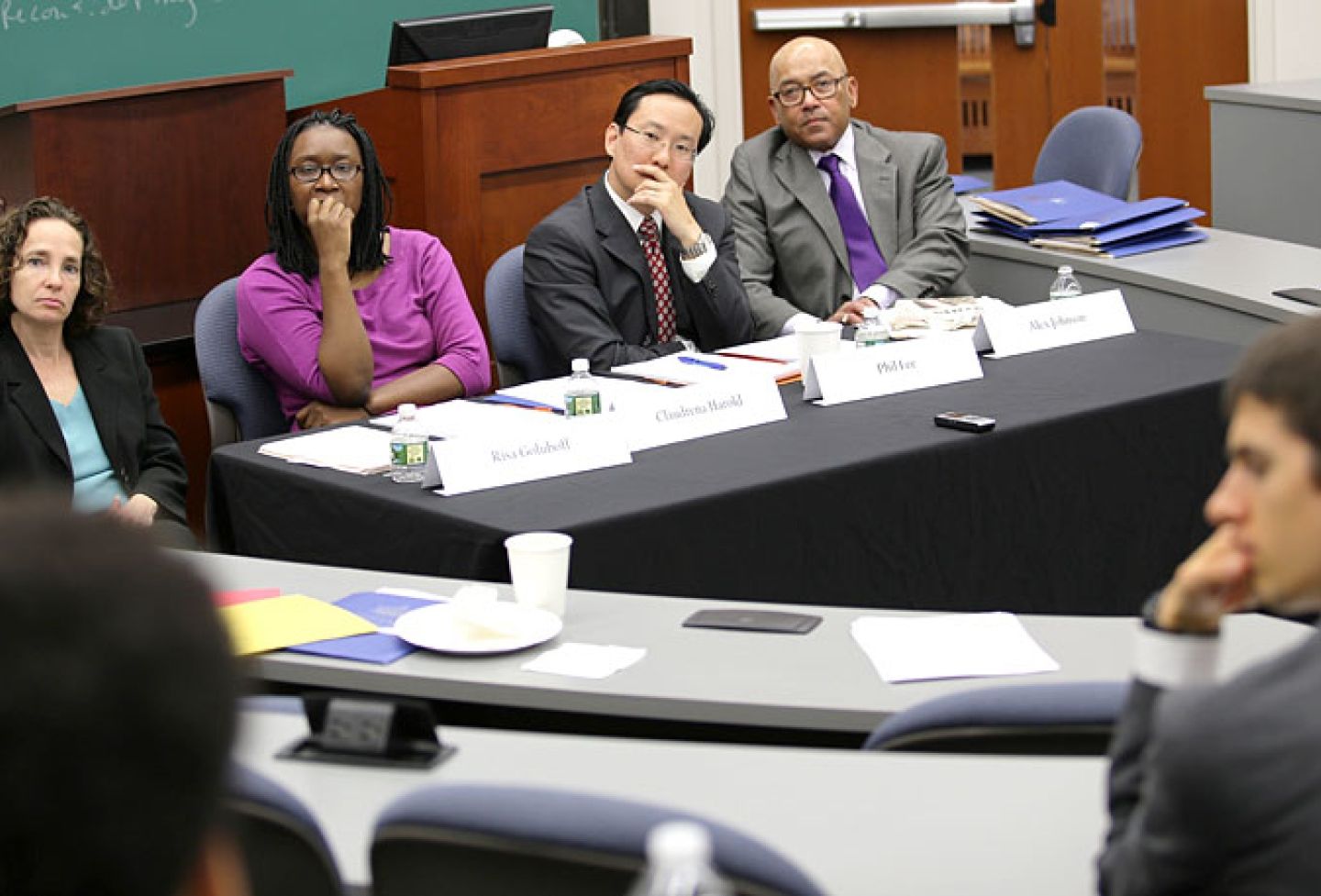
UVA Law Dean Risa Goluboff; Claudrena Harold, associate professor at the University of Virginia; Phil Lee, associate professor at the David A. Clarke School of Law at the University of the District of Columbia; and UVA Law Professor Alex Johnson Jr. discuss race during a conference sponsored by the Center for the Study of Race and Law in 2017. More
Founded in 1819, the University of Virginia School of Law is the second-oldest continuously operating law school in the nation. Consistently ranked among the top law schools, Virginia is a world-renowned training ground for distinguished lawyers and public servants, instilling in them a commitment to leadership, integrity and community service.


